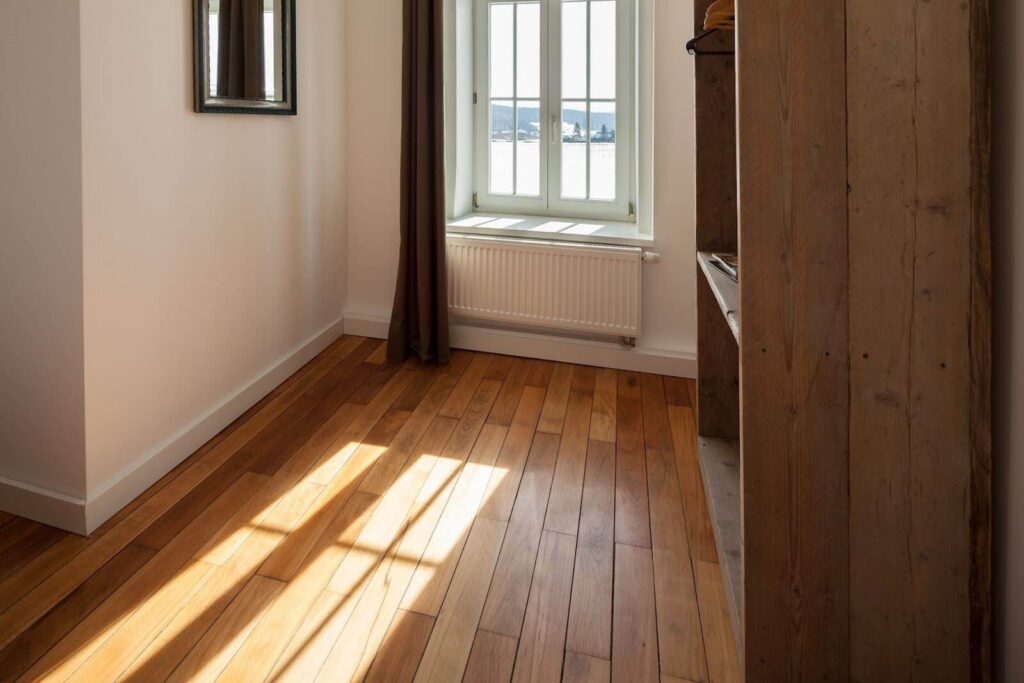The seasons affect how we install flooring. From temperature to humidity, weather conditions impact an installation project. Here’s why winter works for floor installation and everything you need to know about having new flooring installed this winter.
Why Winter Works
Winter weather isn’t exactly easy on floors. You’ve got water, salt, mud, and some leftover fall leaves stuck to your shoes seemingly all season long. Dragging all this into your home can be a detriment to even the most resilient flooring. But when it comes to installation, winter weather conditions are actually great for installation. Since winter is colder and dryer (in terms of air moisture), it’s a great time to install flooring that’s sensitive to humidity. Lower levels of humidity in winter actually benefit many types of projects, including vinyl flooring installation. Your home’s subfloors can absorb moisture when the air is humid during an installation, which can then trap moisture under the flooring when it’s installed. This can lead to mold and mildew growth that can damage the new flooring and subfloor.
While flooring can be installed year-round in climate-controlled homes and businesses, it’s just simpler in the winter. Plus, opting to tackle flooring projects in the winter opens up time and resources for outdoor projects when the weather warms up again.
Nashville Winter Flooring Installation
So, what is the best temperature to install hardwood floors? One important thing to note is that the indoor temperature matters more for installation than the weather outdoors. When installing hardwood floors in winter, it’s important for the wood to acclimate to the temperature of your home. During the few days that your flooring is indoors waiting to be installed, keep the temperature at a steady level that is close to whatever the interior of your home typically is. It’s never a good idea to install flooring in a home that doesn’t have heat or air conditioning installed yet, as that isn’t a good representation of the ambient temps you’ll expect when the home is occupied. Since wood and other flooring types can expand or contract up to a few centimeters based on the temperature, this can lead to cracks, warping, and other issues with the floor in the future.
Soft flooring like carpet or cork can also absorb moisture and make installation difficult, making winter an ideal time to get it done. Carpet fibers absorb humidity very readily, which can lead to moisture problems in the flooring. Hardwoods and engineered hardwood flooring are both susceptible to humidity and inconsistent temperatures, and you don’t want things to change drastically when spring and summer bring moisture. Nashville winters may be fairly rainy, but they’re less humid than summer or spring, making now the best time to install hardwoods in your home for optimal results.
Embrace a Winter Floor Installation
This winter is the perfect time to explore your flooring installation options in Nashville. Work with the pros at Ozburn-Hessey this winter for great results that won’t leave you with worries about warping or shrinking.




